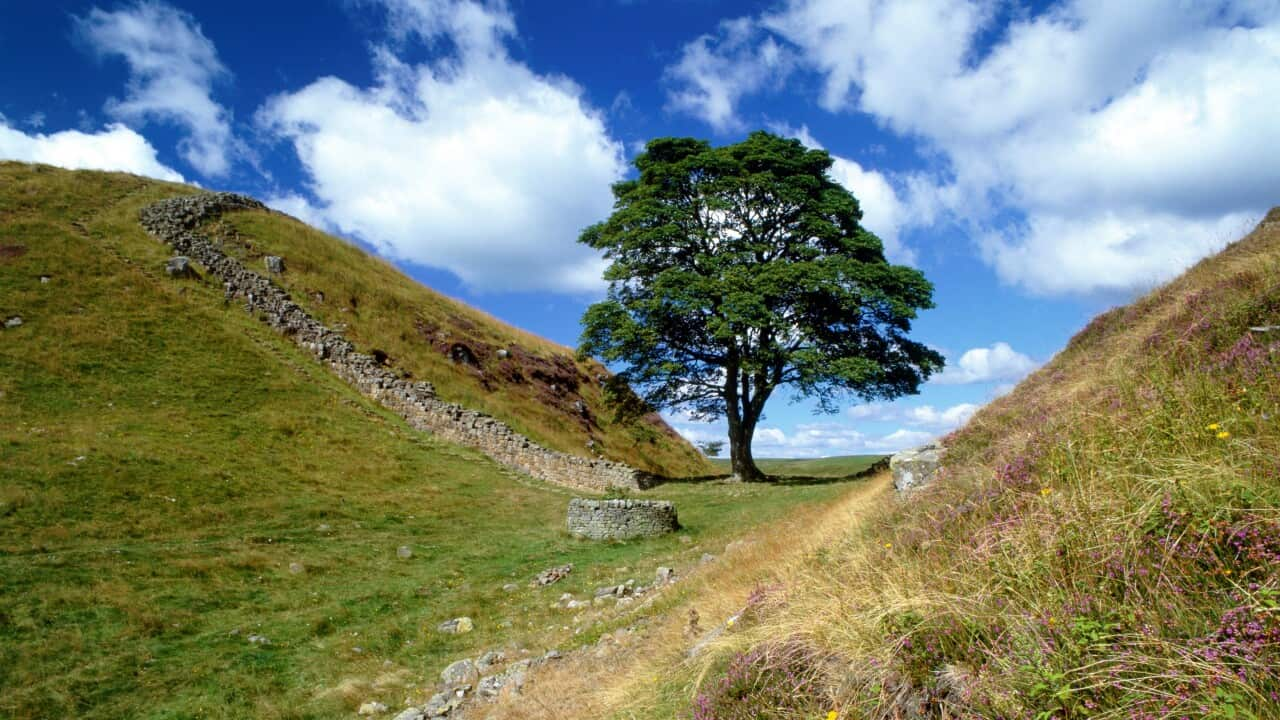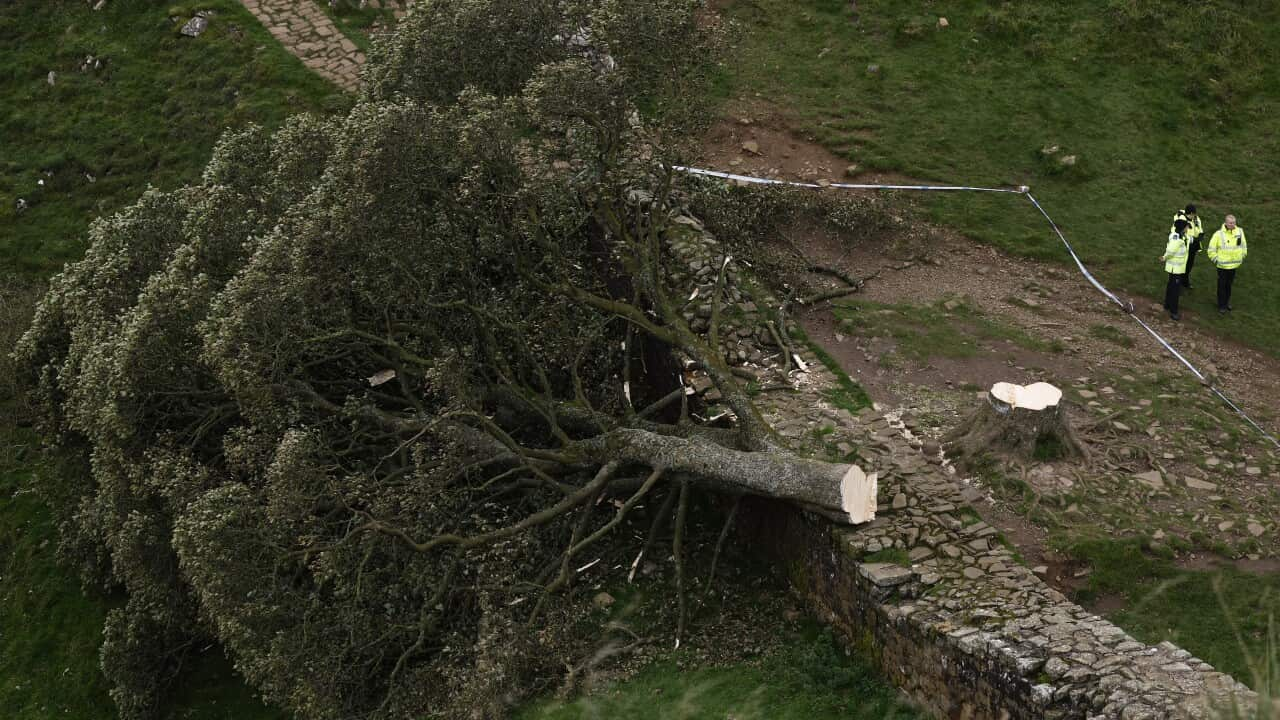A community in northern England has begun debating what should happen next after one of the world’s most famous trees was felled in an allegedly deliberate act of vandalism.
The Sycamore Gap tree, near Hadrian’s Wall in Northumberland, was cut down overnight on Wednesday.
The tragic loss of the 21-metre landmark has been felt across the United Kingdom and the world.
The tree was believed to be approximately 300 years old and was made famous when it was featured in the 1991 film Robin Hood: Price of Thieves.
Known also as the Robin Hood tree, it received thousands of visitors each year and has been described as “part of England’s identity".
Arrests made in connection with Sycamore Gap tree felling
Earlier this week, Northumbria Police announced that a 16-year-old male had been arrested in connection with the incident, but he was later released on bail.
A second man, in his 60s, was later arrested and has remained in police custody.
In a statement, police added that the investigation was “still in the early stages” and urged any members of the public to come forward with relevant information.
What's next for the Robin Hood tree and the site?
As the investigation continues and locals come to terms with the loss, many have weighed in on the debate over what should happen to the site.
National Trust manager Andrew Poad told BBC Breakfast that the remaining trump was “healthy” and it might be possible to coppice the tree, allowing for new shoots to grow from the trunk’s base.
“If we could nurture that then that might be one of the best outcomes,” he said.
However, Woodland Trust estate manager Mark Feather cautioned that it could take “centuries” to replace a tree as old as the one at Sycamore Gap.
“The sad truth is you can’t replace them within any visible timeframe,” he said.

Authorities said the tree's vandalism had "caused understandable shock and anger throughout the local community". Source: Getty / Jeff J Mitchell
Speaking to The Guardian UK, many locals expressed that they are feeling “bereft” and “heartbroken” at having lost such an iconic landmark. Others have taken to social media to suggest ways that the wood could be repurposed and made into a memorial.
Tony Gates, chief executive of the Northumberland National Park Authority, described the tree as a “real inspiration” to creatives and as a place many people had a “deep connection to”.
Despite the loss, he hopes tourists will still want to visit the area.
“We will look to the future and how we can continue to make this a special place for people,” he said.










